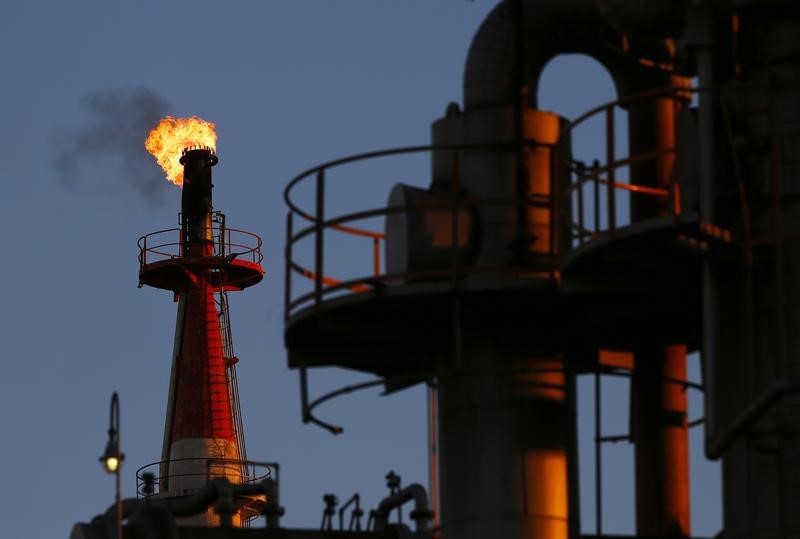By Simon Falush
LONDON (Reuters) - Oil prices rose on Friday, lifted by a rebound in Chinese stock prices and hopes of a breakthrough in the Greek debt crisis, but worries about oversupply and slowing demand limited gains.
Brent crude oil
The day's gains lagged those seen in stock markets, as worries about global demand growth kept oil prices in check.
The International Energy Agency (IEA) said on Friday that oil prices are set to come under further pressure from easing global demand and an expanding glut of crude, while a rebalancing of the oil markets may last well into next year.
The IEA, the West's energy watchdog, said it expected global demand growth to slow next year to 1.2 million barrels per day from 1.4 million this year - far less than needed to balance stubbornly growing non-OPEC and OPEC supply.
"Physical oil market fundamentals remain weak and, in the absence of OPEC production cuts or material supply disruption, this is unlikely to change meaningfully," Deutsche Bank (XETRA:DBKGn) said in a note.
Front-month U.S. crude futures
Greece has put a cash-for-reforms proposal in front of creditors, raising hopes that a deal could be reached this weekend.
In China, the CSI300 (CSI300) stock index closed more than 5 percent higher, extending gains from the previous session after a barrage of government support measures aimed at halting a 30 percent fall in share prices since June.
The plunge in Chinese shares, along with concerns about Greece, contributed in large part to a fall in Brent to as low as $55.10 this week.
"The selloff was about China, and the stock market there has started to stabilise so we have started to recover from oversold levels," said Amrita Sen, chief oil analyst at Energy Aspects.
Chinese data as well as the IEA figures tempered gains. Auto sales there dipped for the third straight month, falling 2.3 percent in June from a year earlier, prompting a halving of its annual sales growth forecast to 3 percent.
Traders were waiting to hear whether a compromise would be reached between world powers and Iran that could lead to increased oil flows if nuclear-related sanctions are lifted, although Washington said it was in no rush to reach a deal.

Top oil exporter Saudi Arabia continues to keep output and export supply high, maintaining fully contracted volumes to Asia in August.